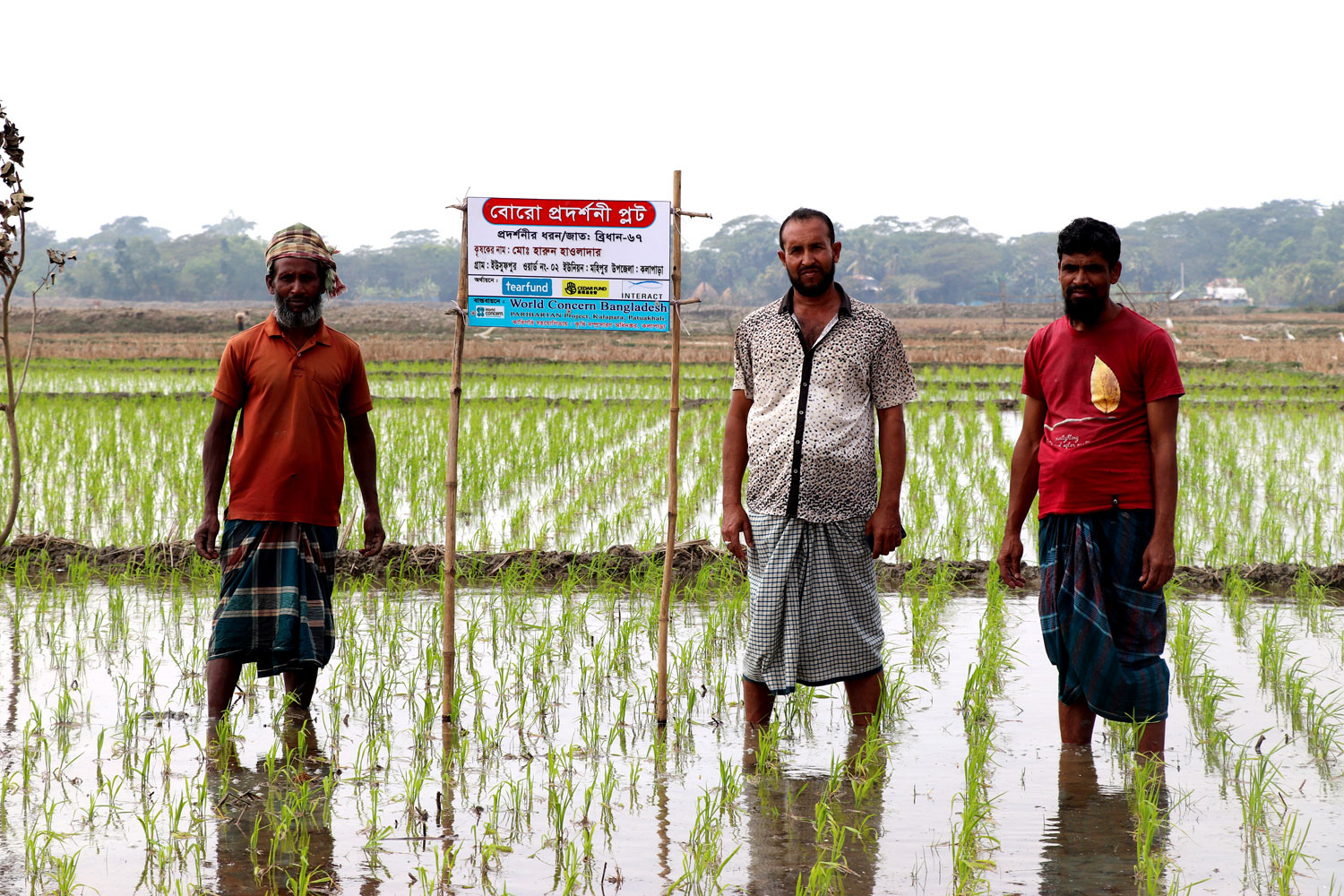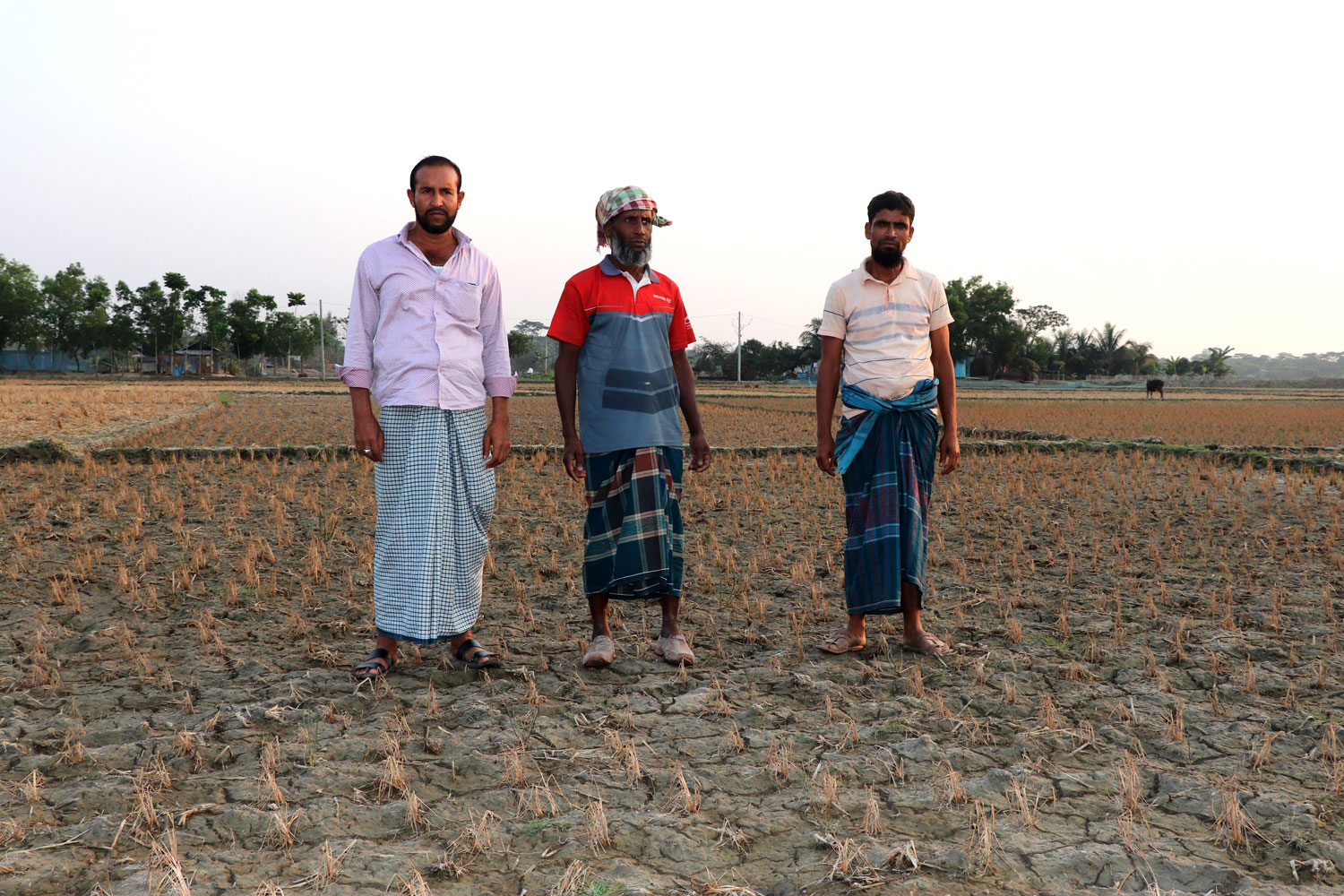Written by: Ken Wong (Communications Officer)
Have you ever had such an experience? When you were trying hard to tackle a problem, not only did other people fail to lend a helping hand, instead they added more nuisance and trouble to your situation. Our ministry in Bangladesh is facing such a situation, and we urgently need your prayers.
Bangladesh is situated in the North of the Bay of Bengal. The southern coastal region of the country is frequently affected by typhoons and different types of flooding. As climate change accelerates, the frequency and intensity of these disasters are also increasing. Disasters significantly impact the poor and marginalised population, as they depend primarily on agriculture and fishery for a living. Therefore, these natural disasters are major impediments to farmers and fishermen.
To help the victims of climate disasters, CEDAR has been working with local partner World Concern Bangladesh to conduct Disaster Risk Reduction (DRR) programmes for at least a decade. Over the years, our partner has successfully implemented various projects, e.g. capacity building and disaster drills to improve local residents’ ability to cope with natural disasters; construction of storm and flood-resistant houses in the affected areas to mitigate against the harm of climate change; training for farmers on climate-resilient agricultural techniques to enable them to maintain basic livelihoods.
Nevertheless, as climate change continues, the problem of soil salinisation along the southern coastline of Bangladesh is becoming more serious. There are many reasons for soil salinisation, including the melting of land glaciers due to global warming, which leads to the rise in sea level and the infiltration of high salinity sea water into the soil; high temperature also accelerates the evaporation of moisture in the soil, further increasing soil salinity. Rice is the main staple food of Bangladeshis, but many varieties of rice cannot grow in high salinity soil, thus seriously affecting the livelihood of farmers.

However, when our staff visited the partner in Bangladesh in early March, they were heartbroken to see that several experimental fields were damaged.
When our staff visited the experimental fields, they were shocked that the originally green rice fields had become water-filled mud. Last month, someone destroyed the dike that separated the seawater from the farmland. As a result, a large amount of seawater flooded the experimental fields, causing the salinity of the field to rise to an irreparably high level. Our staff asked the partner about the cause, but they did not know the exact reason for the damage to the farmland. The poor farmers spent most of their savings on these fields and are now left only with tears and disappointment because nothing could be planted on these fields anymore, and the soil could not be restored. Looking at the helpless farmers and the watery mud, our staff could not help but have tight feelings in their throats and almost cried on the spot.
I also felt angry when I heard the sharing of our staff members. When we were working hard to find a solution to the livelihood problem of the whole coastal area, we were not only doing so for ourselves but for the entire community. If anyone has any thoughts, they can communicate openly and find a better solution together. Damaging the fields did not help the problem, it even made the matter worse, and caused the farmers who were willing to put in resources to suffer a loss. Why so?

On the road to poverty alleviation, we will inevitably face different challenges and setbacks. When we saw the work of our partners being destroyed, we unavoidably felt heartbroken and angry. Thankfully, our partner did not stumble over this incident. Their staff expressed that they would still try hard and are now researching response measures, finding a way out, and thinking about how to help the affected farmers. Indeed, we believe that the Lord Almighty cares for these farmers, He will lend out His righteous hand to save them. By faith, we and our local partner continue to actively advocate for climate justice, and help local residents to cope with the challenges of climate change. Pray that the Lord will sustain our partner’s work, and that more people will be determined to tackle the seemingly irreversible salinisation of the soil and face the challenges of climate change with one mind.

